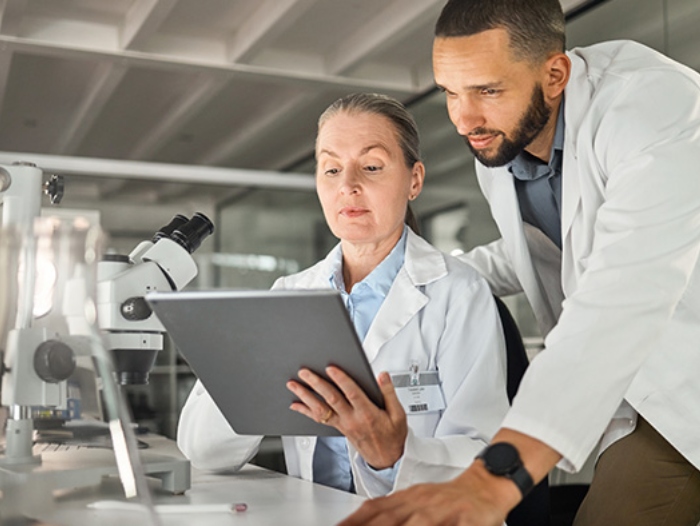Auto logout in seconds.
Continue LogoutMary E. Brunkow, Fred Ramsdell, and Shimon Sakaguchi have won the 2025 Nobel Prize in Physiology or Medicine for uncovering how the immune system avoids attacking the body's own cells — a breakthrough that has reshaped research on autoimmune disease and cancer.
Discovering the body's immune 'off switch'
This year's Nobel Prize in Physiology or Medicine honors fundamental discoveries about peripheral immune tolerance, the process that prevents immune cells from turning against the body's own tissues.
The work began with Shimon Sakaguchi, who in the 1980s observed that mice deprived of a small organ called the thymus developed severe autoimmune disease. When he injected immune cells from healthy mice into those animals, the symptoms disappeared. The finding hinted at a hidden class of T cells that acted as peacekeepers in the immune system.
By 1995, Sakaguchi had identified these "regulatory T cells," or T-regs, which act as a brake on other immune cells that might overreact. According to the Associated Press, Sakaguchi "unraveled an additional way the body keeps the system in check," showing that tolerance wasn't limited to the thymus alone.
A few years later, working together at Celltech Chiroscience outside of Seattle, Mary Brunkow and Fred Ramsdell discovered the FOXP3 gene, which controls the development of those same regulatory T cells. Having studied mice that were bred with a severe autoimmune disorder, the researchers found that mutations in FOXP3 caused the condition — mirroring a rare human disease known as IPEX.
Their combined discoveries revealed how the immune system regulates itself and why its failure can lead to chronic autoimmune disorders such as type 1 diabetes, lupus, and rheumatoid arthritis.
Why their discoveries matter
According to STAT, the researchers' findings "deepen[ed] our understanding of why autoimmune diseases occur and enabl[ed] the development of potential treatments," not just for those conditions but also for certain cancers.
Meanwhile, the New York Times noted that the researchers' work has "contributed to medical advances in cancer and autoimmune treatments, and may help with organ transplants." Identifying the FOXP3 gene has opened the door for drugs that can either strengthen the immune system's brakes — which is useful for calming autoimmunity — or release them to help the body attack tumors.
Today, more than 200 clinical trials are underway exploring ways to harness or inhibit regulatory T cells, according to the Nobel Committee.
Advisory Board's clinical innovation resources
- Topic: Clinical innovation
- 4 imperatives for the future of clinical innovation
- Top 5 takeaways from our Clinical Innovation Summit
Truly personalized care is possible. Here's how to make it a reality.
- How the cell and gene therapy pipeline will change the status quo
Reactions
At the prize announcement in Stockholm, Nobel Assembly secretary general Thomas Perlmann said he reached Sakaguchi in his lab. "[Sakaguchi] sounded incredibly grateful … He was quite taken by the news," Perlmann said. He added that he left messages for Brunkow and Ramsdell on the U.S. West Coast.
Committee chair Olle Kämpe called their discoveries "decisive for our understanding of how the immune system functions and why we do not all develop serious autoimmune diseases."
John Wherry, director of the Colton Center for Autoimmunity at the University of Pennsylvania, said that "[t]his is a great recognition of the fundamental importance of distinguishing self from non-self."
The three laureates will share 11 million Swedish kronor, or about $1.17 million, for a body of work that continues to shape medicine's understanding of the immune system's most delicate balance — knowing when to fight, and when to let go.
(Johnson, Washington Post, 10/6; Joseph, STAT, 10/6; Kolata/Watkins, New York Times, 10/6; Manenkov, et al., Associated Press, 10/6)
Don't miss out on the latest Advisory Board insights
Create your free account to access 1 resource, including the latest research and webinars.
Want access without creating an account?
You have 1 free members-only resource remaining this month.
1 free members-only resources remaining
1 free members-only resources remaining
You've reached your limit of free insights
Become a member to access all of Advisory Board's resources, events, and experts
Never miss out on the latest innovative health care content tailored to you.
Benefits include:
You've reached your limit of free insights
Become a member to access all of Advisory Board's resources, events, and experts
Never miss out on the latest innovative health care content tailored to you.
Benefits include:
This content is available through your Curated Research partnership with Advisory Board. Click on ‘view this resource’ to read the full piece
Email ask@advisory.com to learn more
Click on ‘Become a Member’ to learn about the benefits of a Full-Access partnership with Advisory Board
Never miss out on the latest innovative health care content tailored to you.
Benefits Include:
This is for members only. Learn more.
Click on ‘Become a Member’ to learn about the benefits of a Full-Access partnership with Advisory Board
Never miss out on the latest innovative health care content tailored to you.




